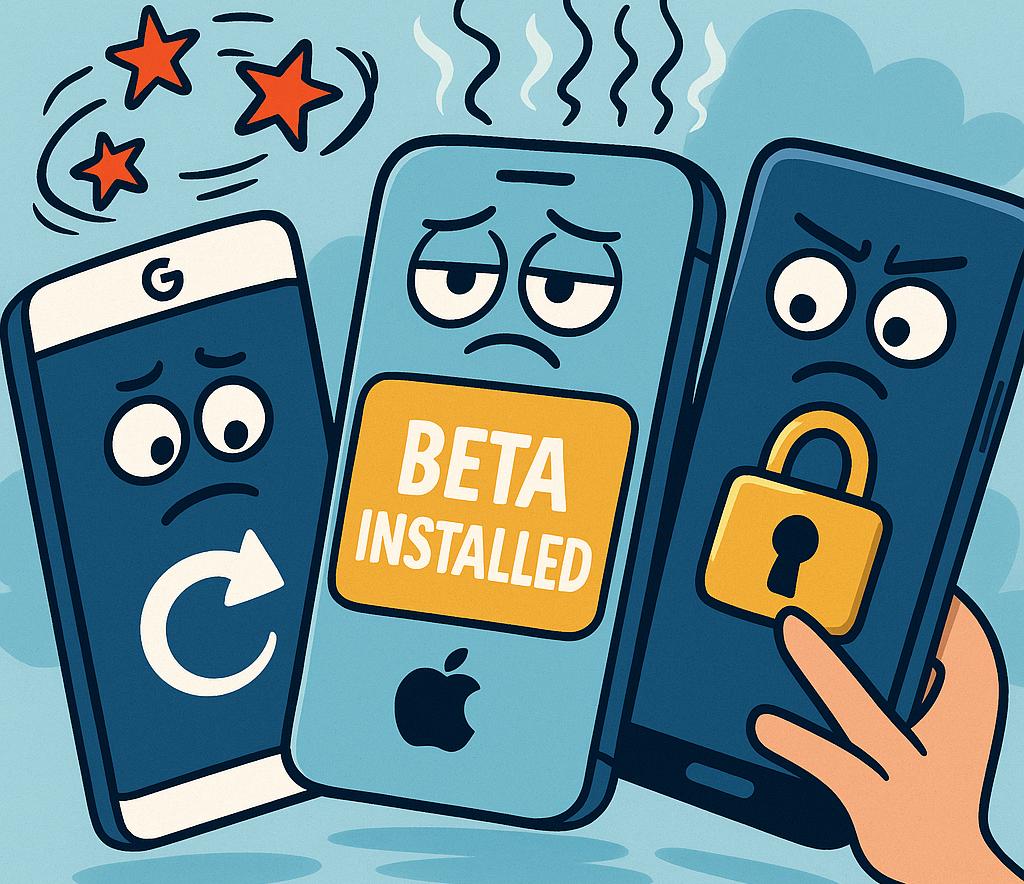Some of you might be familiar with the concept of software degrading over time. It’s not immediately clear to many why that would be the case.
How can code, which is just a set of instructions written in a programming language that a computer can understand and execute, degrade? Let’s talk about it.
We have all experienced our gadgets slowing down over time. Some of that is due to software degradation. Here is how that happens:
1. Fragmentation:
- As you use your device, files and data become scattered across its storage, making it harder for the software to find and access them efficiently.
- This fragmentation increases load times and can lead to an overall slowdown in performance.
There are some steps you can take to mitigate fragmentation. Do note that fragmentation related issues are not as severe in solid state drives (SSDs), it’s a bigger problem on older hard drives. Here are some of the things you can do to combat fragmentation:
- Perform routine disk cleanup to remove unnecessary temporary files, caches, and redundant data
- Ensure that your device has sufficient free storage space. Having ample space allows the operating system to organize and store files more efficiently, reducing the likelihood of fragmentation
- Restart your device regularly. This can help refresh the system and reduce the impact of fragmentation on performance.
2. Bloatware and Background Processes:

- Many devices come pre-loaded with unnecessary software (bloatware) that consumes resources and can slow down performance.
- Accumulated apps and programs running in the background also contribute to performance issues.
Simply delete any unnecessary apps. If you can’t remember using it, it’s gotta go. It’s actually better that you redownload an app six months from today when you need to use it, rather than have it sit on your device just taking up space, and for some of these apps, chowing up resources in the background.
When it comes to ununinstallable preloaded apps, do your research on whether disabling them causes any issues on your particular device. If not, disable that sucker.
3. Updates and Compatibility:

- New software updates often introduce new features and bug fixes but can sometimes demand more resources, leading to slowdowns on older devices.
- Over time, certain software may become less compatible with newer hardware and operating systems, causing performance issues.
Any Windows user will tell you about an update that slowed their computer down. Personally, I recently had to reinstall Windows because the computer was acting up too much. Where I was getting 2 hours on battery, I’m back to around 6.
However, there is nothing you can do about newer updates demanding more resources, which is not a problem for newer devices which have beefier hardware, but means older devices will inevitably slow down.
4. Hardware Limitations:
- As hardware ages, its components like processors, memory, and storage drives can degrade, affecting their ability to handle demanding tasks.
- This hardware degradation can contribute to software slowdowns, especially with resource-intensive applications.
Physics cannot be cheated, these internal components operate at high temperatures, something this hotter weather we are experiencing is not helping. The components will degrade and performance will be affected.
5. Data Overload:
- Storing large amounts of data, such as photos, videos, and files, can consume storage space and create a backlog of information that the software needs to manage.
- This data overload can slow down performance, especially when accessing or processing large files.
I say this with thousands upon thousands of photos, audios and videos on all my devices. My photos are synced to Google Photos across multiple accounts but I won’t delete them from my devices for some reason.
I have no one to blame for the slowdowns I see.
6. Malware and Viruses:
- Malicious software can infect devices and cause various problems, including software slowdowns, crashes, and data loss.
- Regularly scanning for and removing malware is essential to maintain optimal performance.
7. Insufficient Maintenance:
- Failing to regularly clean up temporary files, cache, and unused applications can clutter the system and hinder performance.
- It’s important to perform regular maintenance tasks to keep your device running smoothly.
What do you need to do to mitigate software slowdown?
- Regularly update software and apps.
- Remove unnecessary apps and programs.
- Manage background processes.
- Clean up temporary files and cache.
- Consider restarting your device regularly.
- Scan for malware and viruses.
- Upgrade hardware if necessary.
- Consider resetting your device to factory defaults if problems persist.
It can be annoying having to do all this but it’s either that or a frustratingly slow device. Nobody wants that.
Planned obsolescence
We talked about how Apple was forced to pay users for intentionally slowing down their phones. The whole lawsuit could have been avoided if Apple had been transparent because the said phones had to be slowed down because of hardware limitations – old and degraded batteries.
Replacing the batteries would have solved the problem, even if it didn’t solve the problem of newer apps demanding more resources that older processors and RAM cannot deal with.
This issue of software degradation is fascinating and in the next installment we will talk about why budget phones experience it much more severely than do flagship smartphones.
You may have noticed that you won’t find many Itel phones on the second-hand market. It appears they have very short lifespans before the inevitable slowdowns are unbearable. We will talk about all that next.













Comments
8 responses
I always disable unused apps on my phone if i can’t remove then but I’ve been toying with the idea of changing the OS and using one of those freeware with less bloatware but I’m afraid of rendering the device useless. What would you suggest?
I have played around with custom ROMs and unfortunately they are usually not as stable, even LineageOS. If you don’t mind having some things broken and some random craziness then go for it, but I wouldn’t recommend it. Especially if it’s your primary device.
Thank you
Great article
very informative article.
Sounds like AI’s handwriting anyway great article
If you’ve got an older laptop, get a cheek SSD to run your OS off and slap a Linux distribution on it. 10x better than running windows at this point.
Very informative article….. Guess I need to reinstall windows